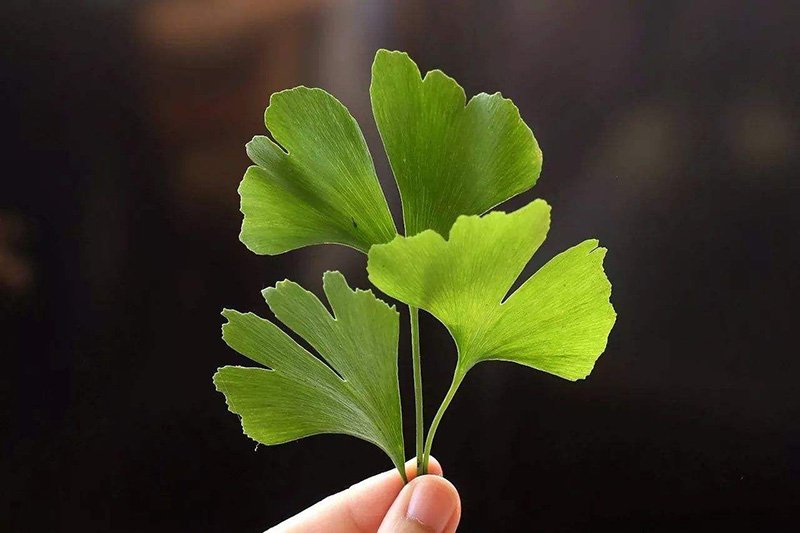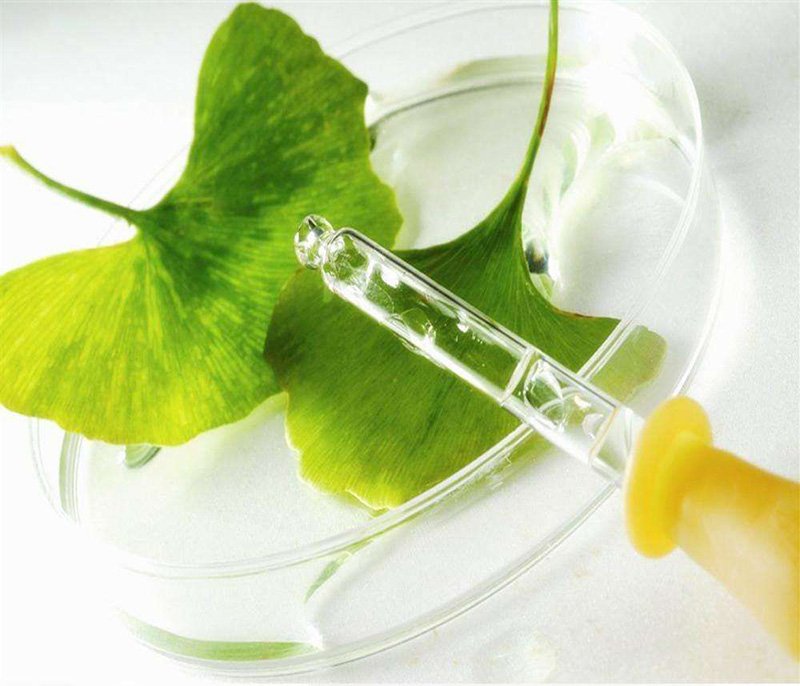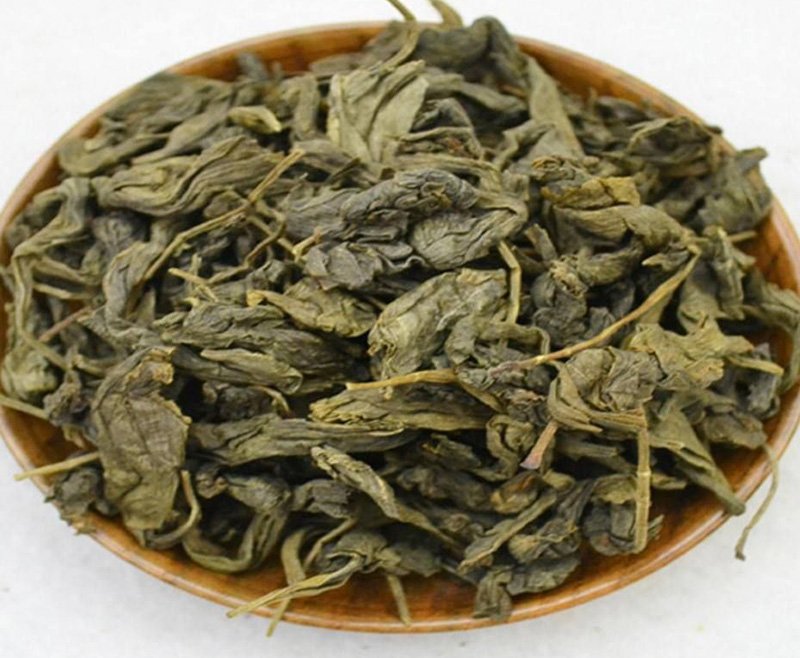Ginkgo Biloba The Living Fossil
Ginkgo biloba is origin in China, as know as the maidenhair tree, which is one of the most ancient plants. In Traditional Chinese Medicine, the seed and leaves of ginkgo biloba will make into food or ginkgo biloba tea as a health food or treatment against diseases.
When dinosaurs ruled the earth 270 million years ago, ginkgo biloba already one of the most flourish plants in the world and still retains its most primitive appearance; therefore, we called it “living fossil” in history of biological evolution.
Ginkgo biloba leaves are bright green, with a small gap in the middle, the edge is irregular waves curved, looks like a fan, and beautiful. It rich in the unique ginkgolide, isoginkgetin, and quercetin, etc., and kinds of vitamins and catechins, all of them are beneficial nutrition to the human body.
But there are some toxic in the raw ginkgo biloba, and it’s not safe to take the fresh leaves. During production, it must be detoxicated.
In addition to being used as a kind of Traditional Chinese Medicine and for making ginkgo biloba tea, scientists also extract various active ingredients from ginkgo biloba leaves for research. The studies found that ginkgo biloba extract appears to have promising potential for treating brain-related diseases.
Ginkgo Biloba Tea Benefits
Ginkgo biloba has been on the earth for such a long time and survived so many extinction crises. People believed that ginkgo biloba has magical power, and it can bring health to humans.
So there come various supplements with ginkgo biloba extract, and the processed ginkgo biloba tea on the market. Most of them are advertising with their “improved memory,” “improved brain health,” and “reduced risk of Alzheimer’s disease” function.
Is ginkgo biloba really so magical, or just puffery?
It’s hard to discuss the ginkgo biloba supplement products, and they still got many other complicated ingredients. Then, what is the pure ginkgo biloba tea good for?
Bloodstream Health
Ginkgo biloba has a unique ingredient ginkgolide, and most of the benefits of ginkgo biloba are basic on it.
Ginkgo biloba tea mainly to keep the bloodstream healthy from two fields.
- Reduce the risk of thrombus
Ginkgolide can effectively inhibit the activity of platelets, reducing the risk of thrombosis, play a role in the prevention of atherosclerosis and heart disease.
- Vasodilation
Ginkgo biloba can also play a role in vasodilation, promote blood flow.
Studies have found that ginkgo biloba can significantly improve blood flow by vasodilation action. It’s helpful for Coronary Artery Disease(CAD) patients.
By dilating the blood vessels, more blood can be flow to all parts of the body, especially where there are only tiny blood vessels, such as the brain and eyes. Research on ginkgo biloba for stroke treatment also based on this.
Eye Health
In the post “Herbal Tea Recipes For Eyesight,” we mentioned the eye-protection benefits of ginkgo biloba tea.
Studies showed that ginkgo biloba extracts help diastole the tiny blood vessels behind the eyes, increase blood flow, and improve retinal sensitivity, concentration, and alertness.
Besides, the ingredients of ginkgo biloba tea can help fight oxidative, which also an affordable adjuvant treatment for glaucoma.
Tinnitus
The vasodilation effect of ginkgolide may be helpful for tinnitus. But the efficacy still needs more experimental support.
Although there is no clear evidence that ginkgo biloba tea helps with tinnitus, it is a troublesome condition that can deterioration or even cause deafness. So if there a little help with the disease by consuming ginkgo biloba tea, it’s worth having a try for the patients.
Anti-inflammatory
Ginkgo biloba extract (EGb) 761 is the main ingredient of many kinds of ginkgo biloba health products, mainly composed of terpenes, ginkgolides, and flavonoids.
Studies have shown that EGb 761 has an excellent anti-inflammatory function, can effectively reduce inflammation, hyperalgesia. It also with an analgesic effect for getting rid of the post-surgical pain.
There is no evidence that ginkgo biloba tea has the same anti-inflammatory properties. EGb 761 does not dissolve in water a lot by brewing.
But because ginkgo biloba tea also contains abundant flavonoids, for general inflammation such as gastroenteritis and pink eye disease may also play an active role. Traditional Chinese Medicine also tends to use ginkgo biloba tea as an anti-inflammatory based on experience.
Antioxidant
Due to ginkgo biloba is so ancient, the Chinese believe it is a symbol of longevity, and in Traditional Chinese Medicine, consuming ginkgo biloba tea is also recommend to anti-aging.
Now scientific research has found that ginkgo biloba does have an anti-aging effect, thanks to its rich antioxidant content.
EGb 761 is also a powerful antioxidant. It has shown promising results in the treatment of degenerative diseases such as Alzheimer’s and Parkinson’s, as well as in the fight against skin aging, cancer, and diabetes.
Ginkgo Biloba Tea Side Effects
Even though ginkgo biloba tea has lots of benefits, it still may cause some side effects. Many people on the internet do not recommend to have ginkgo biloba tea.
Studies showed that ginkgo biloba extract causes cancer in laboratory animals, including liver cancer, thyroid cancer, and nasal tumors.
Of course, this only happens when laboratory animals took extremely high doses of ginkgo biloba extract. Ginkgo biloba tea does not contain a large number of active extracts on its own and, at conventional intake, does not cause cancer in humans.
Ginkgo biloba tea is safe for most people at conventional doses, but some people may experience the following side effects when taking ginkgo biloba tea:
- Headache
- Dizziness
- Constipation
- Tachycardia
- Allergy
- Stomach Upset
- Nausea
At present, there are few studies on ginkgo biloba, scientists are not clear about its medicinal principle, and there is not enough evidence to support its benefits. So ginkgo biloba products are not FDA approved as food and beverage, they can only sell as supplements. And the uses of EGb 761 has not yet been approved by the FDA in the United States but is available by prescription in European countries.
Notes On Having Ginkgo Biloba Tea
Due to ginkgo biloba tea increases bloodstream speed, and inhibits the activity of platelets, and also has the effects on neuronal, so it is not appropriate to take it with other drugs, such as:
- People with blood circulation diseases and taking medications such as ibuprofen and aspirin should not have ginkgo biloba tea at the same time, which will increase the risk of bruising and bleeding.
- Ginkgo biloba tea can cause unstable effects on blood glucose and insulin in type 2 diabetes patients, should not have ginkgo biloba tea while taking diabetes medicine.
- Depression patient takes the ginkgo biloba tea and the SSRI antidepressant such as Fluoxetine at the same time may cause adverse reactions.
Should We Have Ginkgo Biloba Tea?
It seems that ginkgo biloba tea benefits are not unique, but with lots of side effects and dispute. Thus, should we still have ginkgo biloba tea?
First, “The dose makes the poison.” There is no evidence that the rational consumption of ginkgo biloba tea causes severe illness or any life-threatening conditions.
Ginkgo biloba tea has been used in Traditional Chinese Medicine for thousands of years, and although there is no scientific evidence to support it, it is still a beneficial and safe herbal tea.
Of course, ginkgo biloba tea does not recommend for long-term consumption, every time it is best just to take 5-6g for brewing. And it must brew with boiling water. The toxic of ginkgo biloba can be destroyed by high-temperature, to prevent the producer did the lazy job on detoxicate.
What worth noting, never rely on the anti-disease effect of ginkgo biloba tea. Go to the doctor is always the best choice when you got sick.
Finally, ginkgo biloba tea does not taste good.





No comments:
Post a Comment